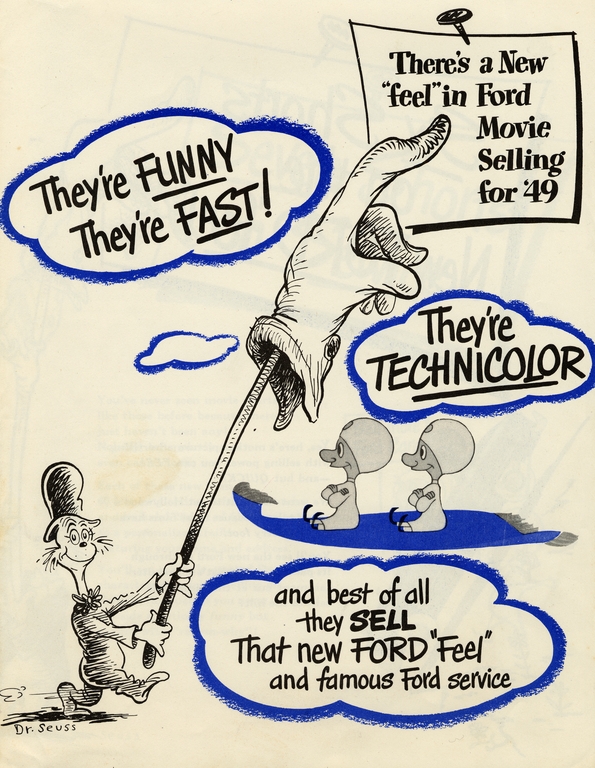
Ford Motor Company advertisement, between 1930 and 1940, Dr. Seuss Advertising Artwork. Special Collection & Archives, UC San Diego Library
Prior to Theodor Geisel’s rise to fame as a children's author, his first steady job was in the advertising industry during the 1920s. It was a time of social change and dissipation throughout America. The new concept of advertising influenced businesses to promote the rise of a consumer society. In 1927, Geisel was working for Judge magazine, a New York City publication, when he caught the attention of Standard Oil. They hired him as an artist, thus starting a 17-year campaign of ads.
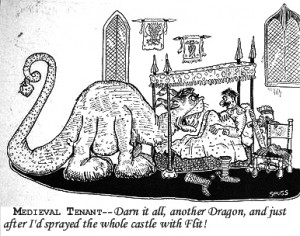
Flit advertisment, 1927

Ford Motor Company advertisement, between 1930 and 1940, Dr. Seuss Advertising Artwork. Special Collection & Archives, UC San Diego Library
"I would like to say I went into children's-book work because of my great understanding of children. But actually I went in because it wasn't excluded by my Standard Oil contract"
~ Theodor Geisel
"[The Standard Oil] ads, along with those for several other companies, supported the Geisels throughout the Great Depression and the nascent period of his writing career,” 'Quick, Henry, the Flit!,' became a common catchphrase,”
~ Mandeville Specail Collections Library
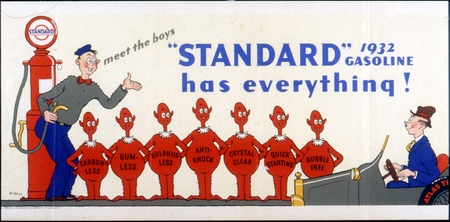
Standard Oil Company - Essolube advertisement, between 1930 and 1940, Dr. Seuss Advertising Artwork. Special Collection & Archives, UC San Diego Library
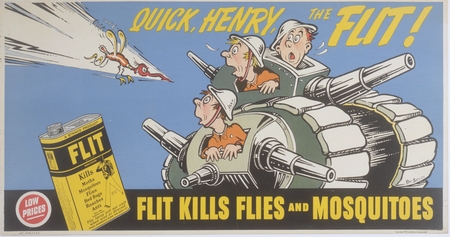
Flit advertisement, between 1930 and 1940, Dr. Seuss Advertising Artwork. Special Collection & Archives, UC San Diego Library
"[My experience with Standard Oil] taught me conciseness and how to marry pictures with words."
~ Theodor Geisel
"[Advertisment] wasn’t the greatest pay, but it covered my overhead so I could experiment with my drawings,"
~ Theodor Geisel
To promote motor oil for Standard Oil, Geisel created "Seuss Navy". Visitors of the Boat Show were commissioned as admirals and photographed with wacky cardboard characters. By 1939, Suess Navy grew to have over 2,000 "admirals".
“While Geisel had done rhymes in cartoons for magazines, Seuss Navy was really his first foray into creating rhyming stories as books, I think he enjoyed the new challenge and it was not long after that, he published ‘And to Think That I Saw it on Mulberry Street.’”
~ Greg Philipson, a speacialist in Seuss' works in advertising as well as his World War II-era political cartoons
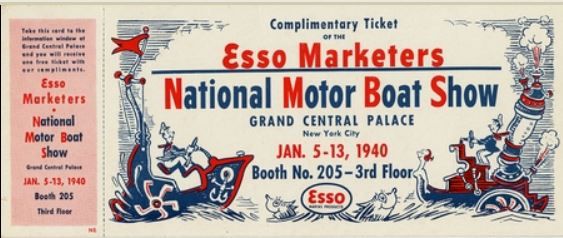
National Motor Boat Show Ticket, 1940, Seuss Navy